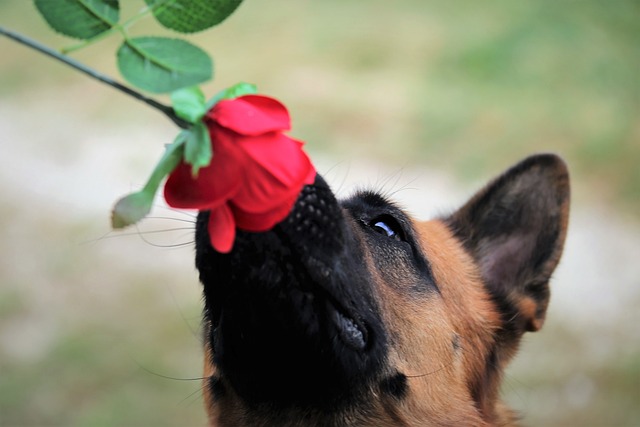German Shepherds are known for their active and energetic nature, and providing them with a balanced and nutritious diet is crucial for their overall health and well-being. One fruit that has gained attention as a potential addition to a German Shepherd’s diet is cantaloupe. In this comprehensive guide, we will explore the benefits, precautions, and best practices for feeding cantaloupe to your beloved German Shepherd.
The Nutritional Value of Cantaloupe for German Shepherds
Cantaloupe is a nutrient-dense fruit that offers a wide range of health benefits for German Shepherds. This orange-fleshed melon is an excellent source of:
- Vitamin A: Cantaloupe is rich in beta-carotene, which the body converts into vitamin A. Vitamin A is essential for maintaining healthy skin, vision, and immune function in German Shepherds.
- Vitamin C: Cantaloupe is a great source of vitamin C, which supports the immune system and helps with wound healing.
- Vitamin K: This vitamin plays a crucial role in blood clotting and bone health for German Shepherds.
- Folate: Cantaloupe contains folate, a B vitamin that is important for cell growth and development.
- Potassium: This mineral helps regulate fluid balance, muscle function, and nerve transmission in German Shepherds.
- Magnesium: Cantaloupe is a good source of magnesium, which is involved in energy production and muscle function.
In addition to these essential vitamins and minerals, cantaloupe also contains a significant amount of water, making it a hydrating and refreshing treat for German Shepherds, especially during hot summer days.
Introducing Cantaloupe to a German Shepherd’s Diet
When introducing cantaloupe to a German Shepherd’s diet, it’s important to do so gradually and in moderation. Here are some tips to ensure a smooth transition:
- Start with Small Portions: Begin by offering your German Shepherd just a few small, bite-sized pieces of cantaloupe. This will allow their digestive system to adjust to the new food.
- Monitor for Reactions: Observe your German Shepherd for any signs of gastrointestinal upset, such as diarrhea, vomiting, or abdominal discomfort. If any of these symptoms occur, discontinue feeding cantaloupe and consult your veterinarian.
- Avoid Canned or Sweetened Cantaloupe: Fresh, ripe cantaloupe is the best option for German Shepherds. Canned or sweetened varieties may contain added sugars or preservatives that can be harmful to your dog.
- Incorporate Cantaloupe into a Balanced Diet: Cantaloupe should not be the sole component of your German Shepherd’s diet. It should be offered as a treat or snack, making up no more than 10% of their daily caloric intake. The remaining 90% should come from a complete and balanced dog food formulated for their age, size, and activity level.
Feeding Guidelines for Cantaloupe and German Shepherds
When it comes to feeding cantaloupe to German Shepherds, it’s important to follow the appropriate portion sizes based on your dog’s weight. Here are the recommended guidelines:
| Dog Weight | Cantaloupe Portion |
|---|---|
| 2-20 lbs (Extra-small) | 1-2 pieces |
| 21-30 lbs (Small) | Up to 3 pieces |
| 31-50 lbs (Medium) | Up to 5 pieces |
| 51-90 lbs (Large) | Up to 6 pieces |
It’s crucial to remember that these are general guidelines, and individual German Shepherds may have different dietary needs based on their age, activity level, and overall health status. Always consult with your veterinarian before making significant changes to your dog’s diet.
Potential Risks and Precautions
While cantaloupe can be a healthy and enjoyable treat for German Shepherds, it’s important to be aware of potential risks and take the necessary precautions:
- Gastrointestinal Upset: Consuming too much cantaloupe can lead to gastrointestinal issues, such as diarrhea, vomiting, or abdominal discomfort. It’s crucial to introduce cantaloupe slowly and monitor your German Shepherd’s reaction.
- Choking Hazard: Cantaloupe should be cut into small, bite-sized pieces to prevent choking, especially for younger or smaller German Shepherds.
- Allergic Reactions: As with any new food, there is a possibility of an allergic reaction. If you notice any signs of an allergic reaction, such as skin irritation, swelling, or difficulty breathing, discontinue feeding cantaloupe and seek veterinary attention immediately.
- Pesticide Residues: If feeding fresh cantaloupe, be sure to thoroughly wash the fruit to remove any potential pesticide residues that could be harmful to your German Shepherd.
Consulting with Your Veterinarian
Before incorporating cantaloupe or any other new food into your German Shepherd’s diet, it’s always best to consult with your veterinarian. They can provide personalized guidance based on your dog’s age, health status, and dietary needs. Your veterinarian can also help you determine the appropriate portion sizes and frequency of feeding cantaloupe to ensure your German Shepherd’s overall well-being.
Conclusion
In conclusion, German Shepherds can safely enjoy cantaloupe as a healthy and refreshing treat, provided it is introduced gradually and in moderation as part of a balanced diet. By understanding the nutritional benefits, proper feeding guidelines, and potential risks, you can confidently incorporate cantaloupe into your German Shepherd’s meal plan and support their overall health and well-being.






